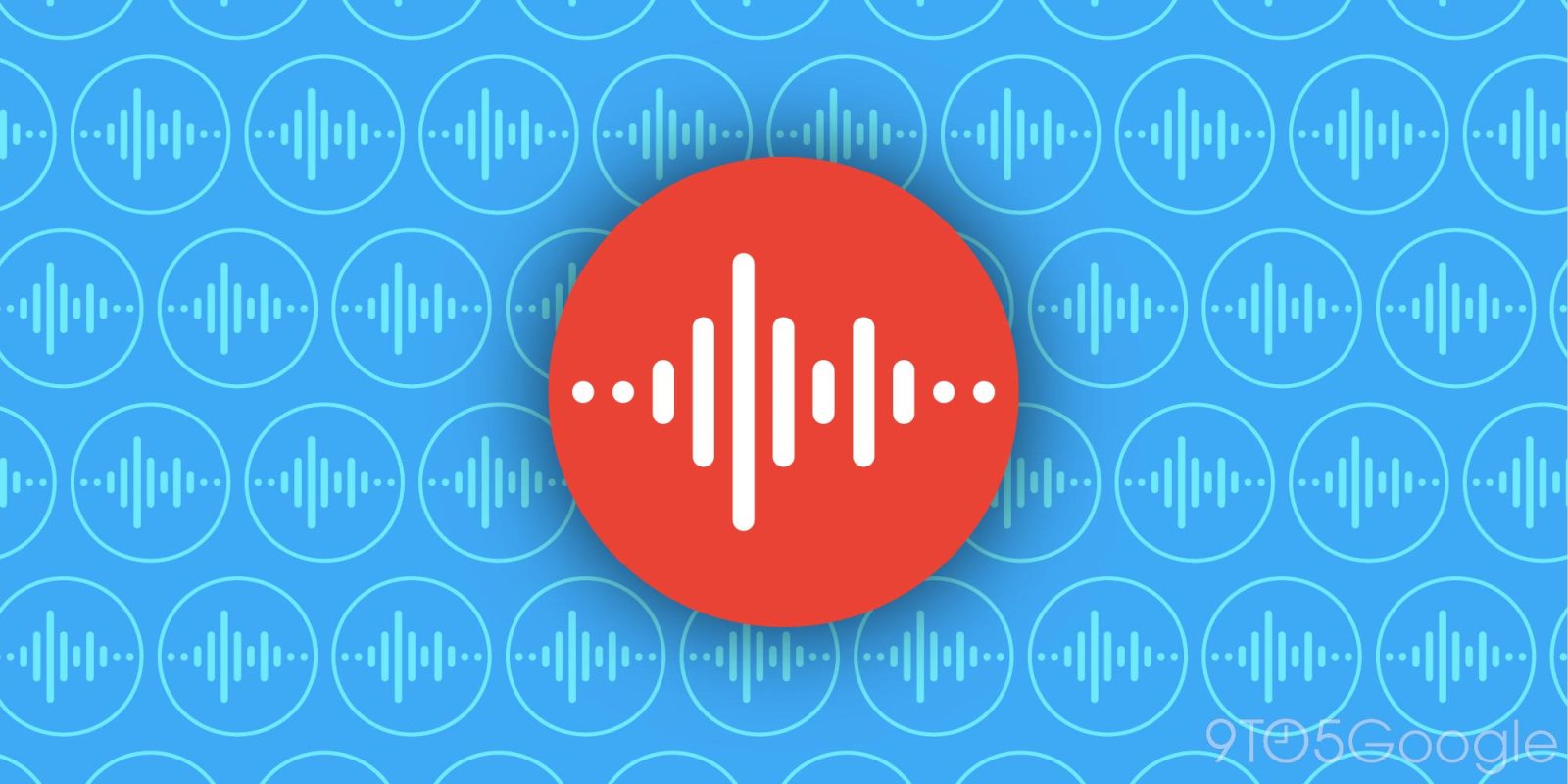
Recorder is for transcribing audio, and that singular focus feels rare in modern apps that are packed to the brim with (tangentially) related capabilities. I almost equate it to a single-purpose physical tool, while the only other equivalent piece of software that comes to mind is Calculator.
9to5Google has a rebooted newsletter that highlights the biggest Google stories with added commentary and other tidbits. Sign up to get it early in your inbox, or continue reading 9to5Google Log Out below:
When you open the app, you are greeted with a large FAB (floating action button) that leaves no doubt that tapping starts a session. Save for modernizations, this core UI has remained mostly the same since launch.
2019 vs. Today
Software and screens obviously let you do things that aren’t always possible or practical in the real world. Compared to the vast majority of applications, Google’s recording interface feels tangible, and I can imagine physical versions of these virtual buttons, especially the toggle switch between the Audio waveform and Transcript. (Material You’s spaciousness is a natural fit that emphasizes how you’re just here for one thing.) I’d very much like a single-purpose tape recorder – I’d settle for Teenage Engineering’s TP-7, but not at that price – if it looks like this Pixel app.
Of course, the real highlight is live transcription. It’s surprisingly good for something that works nearly instantaneously and is free to use without a subscription (in a real value-add for Pixel devices). My go-to move when I need a snippet of text immediately but don’t want to disrupt the session is using Android’s Recents menu to take a screenshot. It would be nice if Google added a similar bookmarking shortcut capability in the future.
Besides the recording and playback screens being identical, the other main UI is a reverse-chronological list of recordings that feels infinite once you’ve amassed years of audio. This timeline can be unwieldy, and organization via folders wouldn’t hurt. However, there’s a rare straightforwardness to an interface that doesn’t have a navigation drawer, bottom bar, or tabs.
Recorder’s tablet/foldable design has a natural two-column layout (waveform + transcript), while the FAB and other controls are placed in the bottom-right corner. The web app also has a good Material 3 implementation and is a powerful companion when working with a lot of text.
Subsequent additions to Recorder have been very focused on improving the core experience. Editing tools and Speaker Labels made it easier to parse a transcript, while video clips make sharing fun. The QS (Quick Settings) Tile provides a fast way to start recording.
Besides the aforementioned UI tweaks, how Google could improve Recorder is very clear: Keep updating the speech-to-text models until we get near-perfect transcriptions.
From 9to5Google
Google Maps ‘Driving Mode’ on Android might go away in 2024
Android Auto will have Google Assistant summarize your messages with AI
Recapping Pixel software and Feature Drops in 2023
Google fixes Flutter’s most infamous scrolling bug
Samsung’s new ‘Battery Protection’ feature shows up early – here’s how it works [Gallery]
Google Clock gets Pixel-y redesign for weather forecasts after ending alarm [Video]
Android Auto now matches your phone’s wallpaper with latest update [Gallery]
Galaxy S24 price leaks surface, satellite connectivity may be skipped once again
Nothing Phone (2a) price will be nearly half of Phone (2), more specs leak
Pixel 8 and 8 Pro repair parts reveal more expensive cameras
This ‘Made for Fitbit’ 3-in-1 charging dock works with Pixel Watch 2, Buds, and phone
From the rest of 9to5
9to5Mac: Apple Watch Series 9 and Ultra 2 return to Apple Online Store after a week of unavailability
Electrek: Tesla Model Y refresh coming in next few months, report says
FTC: We use income earning auto affiliate links. More.

>>> Read full article>>>
Copyright for syndicated content belongs to the linked Source : 9to5google.com – https://9to5google.com/2023/12/29/ode-to-pixel-recorder/









